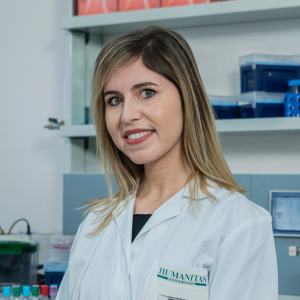Research Group
Lleo Group
Hepatobiliary Immunopathology Lab
Lleo's Lab is focused on the liver environment and the molecular mechanisms determining liver tumor development and progression, with a focus on cellular immunology, genetics, and metabolomics of both primary and metastatic liver cancer. Our ultimate goal is translating knowledge from bench to bedside to improve prognostic predictors and identify new molecular targets.
Main research areas
Characterization and pathogenic role of hepatic macrophages in Colorectal Liver Metastases
Liver resection combined with systemic chemotherapy has been recognized as the potentially curative treatment for patients with colorectal cancer liver metastases. However, some patients undergoing liver resection do not have long-term survival. Therefore, additional markers to understand the biological dynamics of the disease after hepatectomy are needed. Tumor-associated macrophages and Myeloid-Derived Suppressor Cells (MDSC) are emerging as attractive targets because increasing evidence has demonstrated that their accumulation is related to poor prognosis and drug resistance. Furthermore, the immunohistochemistry analysis of peritumoral macrophages in patients has shown a strong correlation between the percentage of macrophages and the aggressiveness of the metastases
Decoding the clinical heterogeneity and therapeutic resistance of intrahepatic cholangiocarcinoma
Cholangiocarcinoma is the second primary liver malignancy in terms of frequency. There are few data regarding the molecular pathogenesis and signaling cascades implicated in this tumor. This project aims to dissect the genetic, phenotypic, and metabolomic characteristic of neoplastic cholangiocytes and the tumor associated immune infiltrate. In addition, we aim at identifying novel molecular targets susceptible to selective blockade, followed by their experimental validation.
Cholangiocytes-on-a-chip: a platform to identify medical therapy
Disruption of the hepatobiliary homeostasis leads to altered cellular signaling, immune system activation, inflammation, and eventually liver fibrosis. Due to the complexity of the in vivo cellular interactions, these mechanisms are largely unknown and therapeutic strategies are limited. In a collaboration with the Politecnico di Milano, we aim at developing and employing a clinical in vitro tool based on microfluidic 3D multi-cell culture that will help in deciphering the pathological contribution of each cellular actor as well as in screening drug efficacy with a personalized patient approach.
Selected publications
Multimodal single-cell profiling of intrahepatic cholangiocarcinoma defines hyperactivated Tregs as a potential therapeutic target.
The Shifting Paradigm of Prognostic Factors of Colorectal Liver Metastases: From Tumor-Centered to Host Immune-Centered Factors.
Quantitation of the Rank-Rankl Axis in Primary Biliary Cholangitis.
International genome-wide meta-analysis identifies new primary biliary cirrhosis risk loci and targetable pathogenic pathways.
DNA methylation profiling of the X chromosome reveals an aberrant demethylation on CXCR3 promoter in primary biliary cirrhosis.
Shotgun proteomics: identification of unique protein profiles of apoptotic bodies from biliary epithelial cells.
Genome-wide meta-analyses identify three loci associated with primary biliary cirrhosis.
Group members




